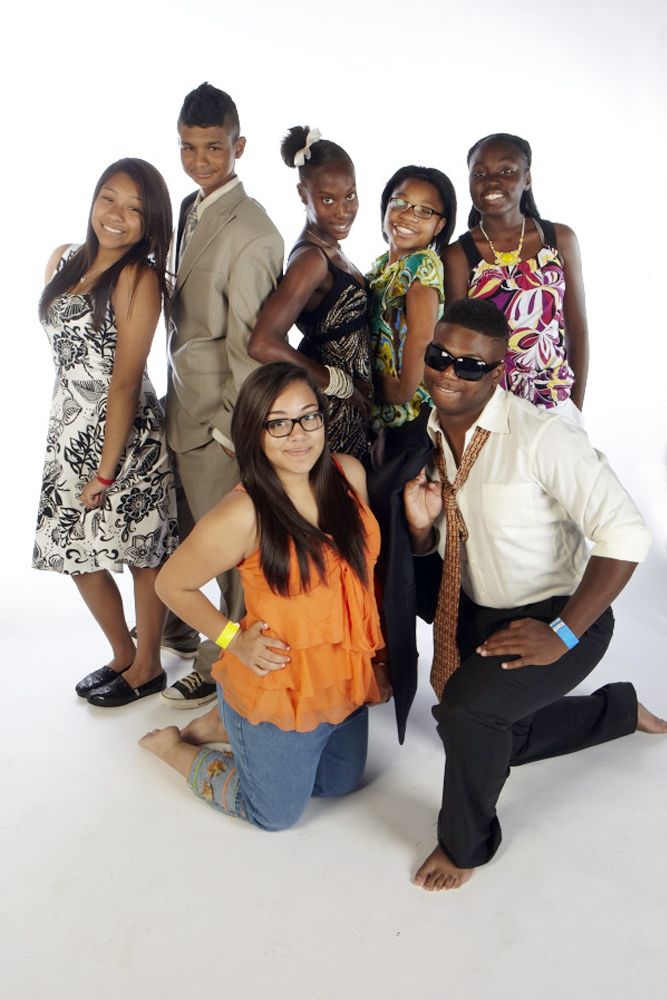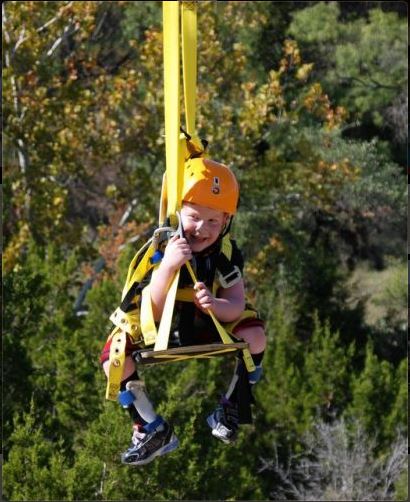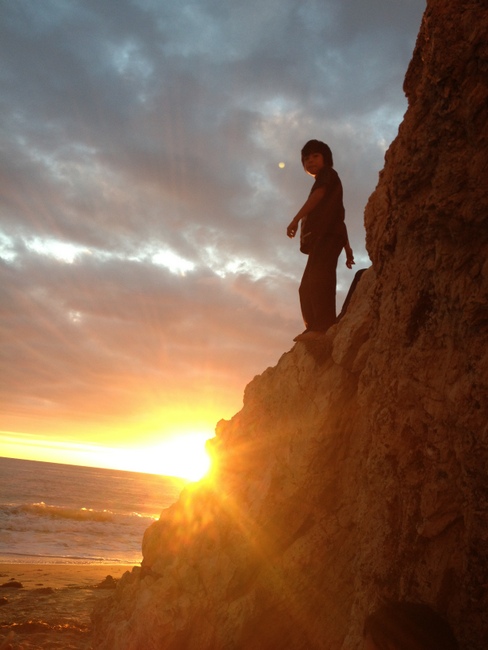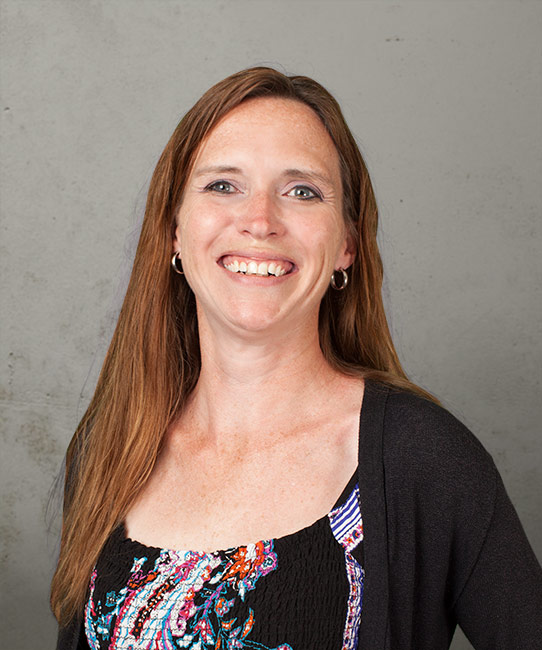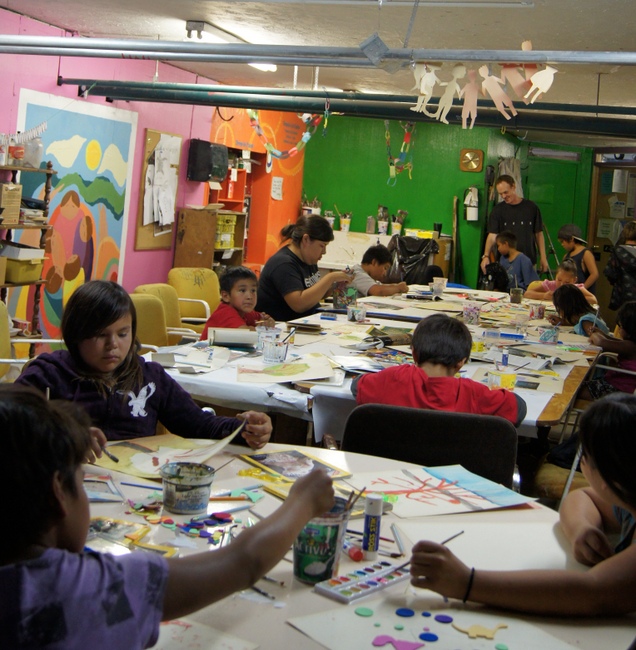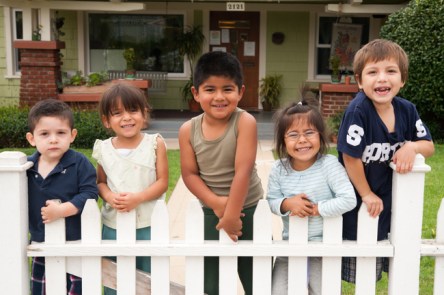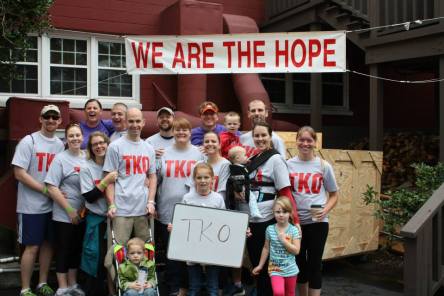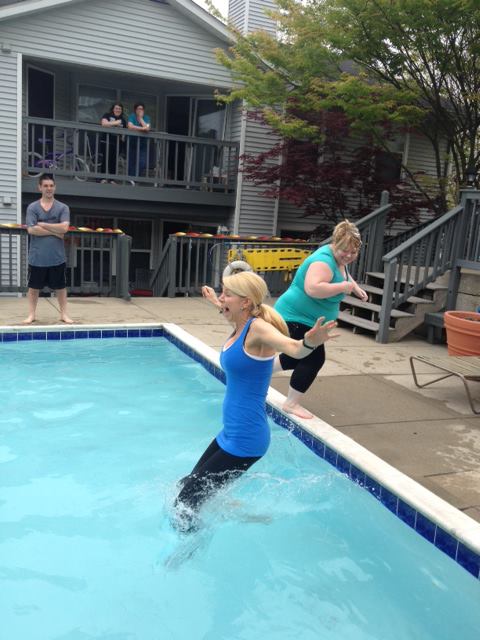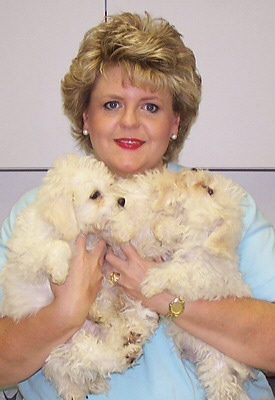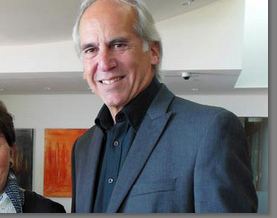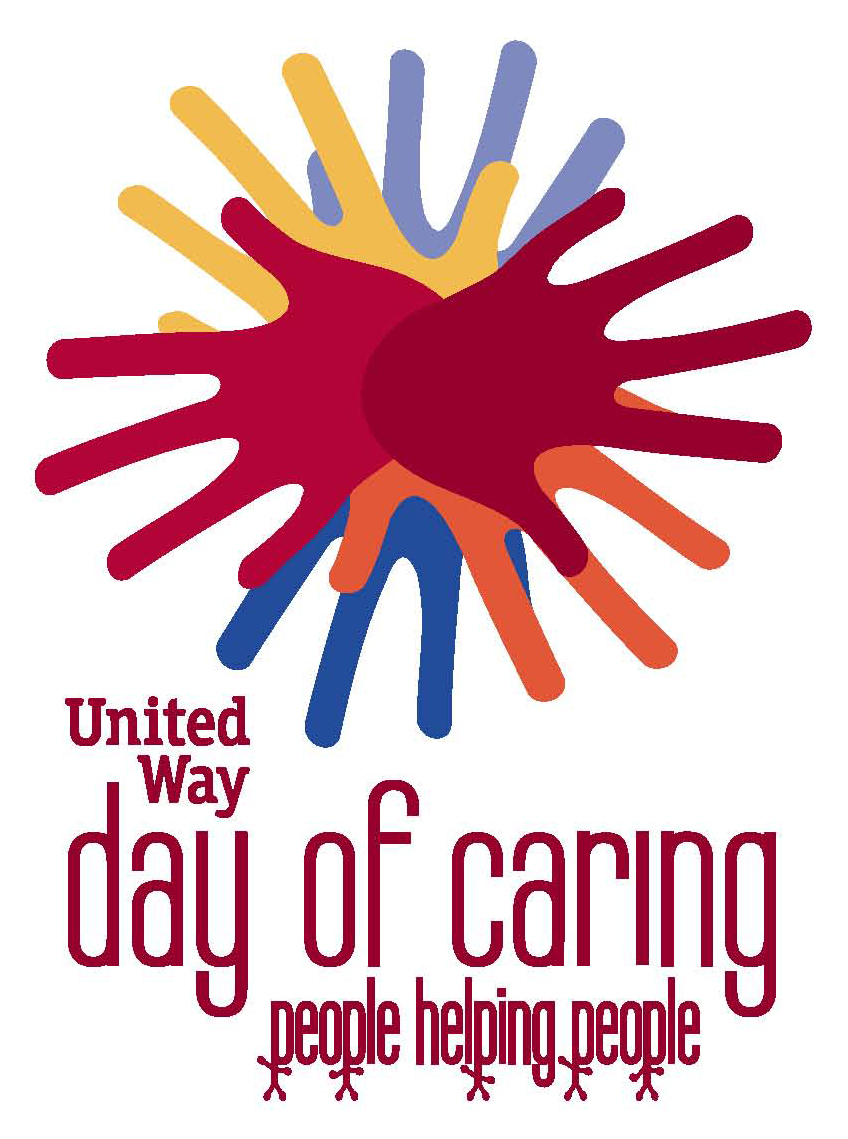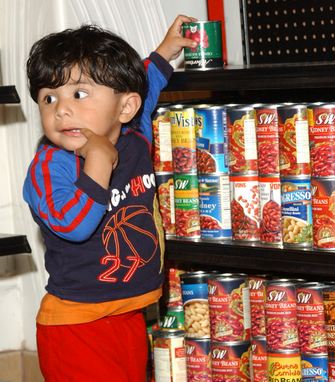Competition can be empowering. It doesn’t matter whether the competition takes place on a field, court or office. Knowing that you will go head-to-head with a worthy competitor encourages you to set goals, hone your skills, and believe that you are capable of emerging from the competition as a victor. You alone can forge the path to victory. Michelle Duke, Manager of Special Events and Volunteers at Special Olympics Santa Barbara, has seen the empowerment of competition at work in the athletes that she serves. From weekly practices to grueling four hour tournaments, Special Olympics athletes first challenge themselves before challenging their opponents. Their personal victories give them the confidence needed to tackle larger challenges in life. “We have an athlete who was incredibly shy. He really didn’t have any friends,” says Duke. “He got into our program and soon became a leader to other athletes. He took part in Global Youth Activation Summit where he was able to travel to Korea for the World Games. He served as an ambassador for Special Olympics. He really never would have been able to do it without the confidence that he gained with Special Olympics.” The experience empowered him with the skills needed to step out in other areas and live his life to the fullest. “Participation in the programs changes athletes’ outlook, social skills, and impacts their lives,” Duke says. Through Special Olympics, athletes also gain a support system that provides encouragement and camaraderie. Without such programing, many adults living with developmental disabilities can lead solitary lives; it can be challenging to relate to others. “Being in Special Olympics helps [athletes] connect with people of their same background, people who understand them,” says Duke. The social aspect of the games strengthens self-esteem, builds character, and...
The Main Place
Addressing Invisible Need
The needs of our neighbors aren’t always evident. When Sharon Johnston served as the president of Irving Women’s Network (IWN) from 2004-2006, the organization was shocked to discover that there were over 1,000 homeless teenagers in their town. Johnston immediately called the school district’s homeless liaison to figure out how such a need could be overlooked. “I discovered that most of them were couch surfing or doubling up – multiple families living in one small home or apartment,” says Johnston. While many families avoid life on the streets, they are still unable to make ends meet. Among other things, the growing children lack adequate clothing. Johnston, a resourceful leader, quickly gathered a budget from IWN and purchased one hundred pairs of jeans, one hundred T-Shirts and one hundred hoodies. “That’s the unisex thing that everyone is wearing, kind of a uniform for teens,” Johnston laughs. She contacted Project PASS and had the clothing distributed to local teens. A similar system continued for several years. In 2009, Johnston joined forces with four other women to form Advocates for Homeless Teens. Through a triad partnership with IWN, Stein Mart- Las Colinas and Dignity U Wear (a national charity founded by an Auschwitz survivor) they received 16 commercial-sized boxes of clothing but they had no place to store or distribute the apparel. The fledgling organization rallied support from local leaders, getting their major breakthrough with the Mayor. Johnston would have been happy with a climate controlled storage unit but through the Mayor’s connections she was given access to a 6,090 square-foot building that was formerly an antiques mall. “It was a hot mess,” Johnston admits. The hole-pocked walls were covered in multicolored paint, capped off with a retro border. AllState Insurance Corporate office supplied 45 volunteers on Martin...
Candlelight Ranch
Sustainable Empowerment
Candlelight Ranch provides nature-based camps for children with special needs. By customizing experiences to accommodate each group, children receive the care that they deserve as well as the challenges and opportunities that they crave. Public Relations and Marketing Chair, Adrienne Hagler, has served Candlelight Ranch for four years. The joy of working with a nonprofit was the supplement she needed in the routine of her everyday life. “To feel good when you wake up every day makes a difference,” says Hagler. “It’s not just happiness in your own life but in many lives, the majority of those who are children, some who have special needs and some who are at risk. It feels good be involved in something that promotes development and wellness in a natural environment.” Personal development and wellness is a focal point for Candlelight Ranch. Camp programs foster a sense of independence, self-confidence, and exploration. “A lot of kids who have special needs don’t serve their own plates at breakfast or wash up on their own or brush their own teeth,” begins Hagler. “A day at camp at Candlelight Ranch, these kids are encouraged to do it on their own.” Activities start first thing in the morning: outdoor excursions, soaring over the canyon on zip lines, hiking down to fresh water springs, or testing their bravery on a suspended ropes course. All activities are made accessible for participants. An all-terrain wheelchair offers kids the opportunity to tackle rugged terrain with their peers. Even the tree house is wheelchair accessible, providing a rare opportunity for kids with mobility issues to fulfill a typical childhood dream. Each activity instills self-confidence and opens a world of possibilities for the children. While the physical activities strengthen their bodies and their sense of personal accomplishment, Candlelight Ranch’s...
Learning, Naturally
Wilderness Youth Project
Yardi’s former Vice President of Client Services, Michelle Howard, now serves as Development Director at Wilderness Youth Project (WYP). Her passion for the environment prompted the career change. Yet after nine years of service, she has realized that the nonprofit’s scope extends beyond Mother Nature: WYP prepares children for a future in environmental stewardship while simultaneously closing the achievement gap. “Our nature programs are a tool to accomplish so much more,” says Howard. The Wilderness Youth Project uses educational outdoor excursions to improve children’s chances for academic and social success. Programs enrich the lives of students in three areas. Reversing Nature-Deficit Disorder Children spend 90 percent of their time indoors. This disconnect with nature, or nature-deficit disorder as many now call it, can result in higher stress levels, hyperactivity, depression, anxiety, mental and physical fatigue. Research demonstrates that children’s propensity for stress and symptoms of ADD/ADHD decreases when they spend time in nature. A study by the University of Illinois suggests that exposure to nature improves mood, cognitive functioning, and self-discipline. WYP offers programs throughout the year to help families reconnect with the natural environment, paving the way for improved mental and physical health. Activities range from calming hikes and wildlife studies to more rigorous lessons in survival skills and team sports. Fighting the Summer Slide Once the school year ends, children are faced with a gap in their education. Howard explains, “If you take kids from middle income families that have access to resources and compare them to similar kids living in poverty—both can have the same education at the end of the semester with the same grades—but when they come back together in the fall the kids who have access to summer enrichment resources are significantly ahead of the kids who don’t.” The difference is called the summer slide....
Cradles to Crayons
Making Back to School Brighter
The list of what children need for school seems to be growing. What’s more challenging is that the materials aren’t affordable for everyone. The National Retail Federation reported that on average, parents will spend $688.62 on preparing a single child for school. For most of us, we simply cough up the extra cash so that our kids, nieces, and nephews can be fully prepared for whatever the school year brings. With new shoes and fully-stocked backpacks, we rest confident that they have what they need to succeed. But that’s not a reality for all children. Many hardworking parents are struggling to provide the basic clothing their kids need for school, much less are they able to furnish the growing list of required supplies. That’s where Cradles to Crayons steps in. The nonprofit organization reaches out to homeless and low-income families, providing children from birth through age 12 with the essentials that they need to thrive at school, at home and at play. Items are provided through monetary contributions and through the donations of gently used clothing and shoes. The simply yet effective model has drawn admiration. Elizabeth Farley, Cradles to Crayon’s Communications Consultant in Boston, was attracted to the organization as an AmeriCorps volunteer. After her service, she decided to stay on board. “The model is so efficient and effective. It just makes so much sense,” says Farley. “There are children who have so many things, so much excess of clothing, toys, and books—sometimes things they never use—and on the other hand there are children in the same states, sometimes in the same neighborhood, who don’t have any of those things and they need them. It’s affecting their lives that they don’t have those things. It’s a very simple model with a strong impact.”...
Ascentia
Valuing Community
Throughout its 40-year history, Ascentia has maintained family and unity as the priorities of its manufactured home communities. The Mercy Fund helps the company fulfill its mission, making a positive mark in the lives of residents that can never be erased. After gaining valuable information at a YASC conference four years ago, Yardi client, Ascentia, embarked on a transformation. The company instituted a multifamily model to manage its 7,000 units of mobile homes, reaching a unique market of consumers who were not interested in traditional apartment life or the ties of a mortgage. Amy McKelvy, director of training and development, calls the communities “single-level apartments with grass yards.” “Most of our residents now are young families with children and at least one pet. It’s difficult for them, in some locations, to find affordable living that allows them to have the freedom and the privacy that most people enjoy,” says McKelvy. The multifamily model for mobile homes has experienced great success. Yet through its growth, the family-owned company hasn’t lost sight of its original emphasis on the importance of family and community. The Mercy Fund ensures that Ascentia can support its tenants like relatives. The Mercy Fund is the brainchild of founder B.M. Vukovich, created to help residents through difficult financial times. Employees, investors, residents and other third party participants are encouraged to make donations to the fund throughout the year. The funds are then dispersed to residents with dire need. “The atmosphere inside is that, not only is the staff family but our residents are our family as well,” says McKelvy. The autumn floods that swept through Colorado tested the company’s commitment to its extended family. In September of 2013, the Boulder metropolitan area suffered a deluge, dumping more than 17 inches of water...
SCYAP
Social Enterprise through Art
Since 2001, Saskatoon Community Youth Arts Programming (SCYAP) has offered free visual and graphic arts training to aboriginal youth. Students can chose any of 13 afterschool programs, seven First Nation reserve courses, or attend sessions at SCYAP headquarters. In each setting, the organization provides a safe, encouraging space where youth can hone their art, transforming their raw talent into a source of hope, personal achievement, and income. Founder and Executive Director Darrell Lechman holds an extensive background in social services specializing in aboriginal youth. Through SCYAP, he is able to blend his skills as a youth advocate with his enthusiasm for the arts. It’s the perfect fit. “SCYAP has continued for 13 years because we are passionate about what we do,” says Lechman. But it takes more than passion to undo the effects of 130 years of systematic injustice towards one demographic. That’s why SCYAP uses art to gradually build trust and accountability. Both tools can ultimately lead to youth who are feel valued and are valuable contributors to society. Over 70% of SCYAP participants are of aboriginal ancestry. These youth face challenges that are unique to their situation: in addition to the barriers of poverty, youth experience prejudice, racism and classism that can result in distrust. In order for SCYAP staff to reach each student, they work consistently to build trust. “Without trust, the program is superficial,” says Lechman. Simultaneously, SCYAP uses art to instill responsibility and self-worth. Impoverished youth who have two working parents, or a single working parent, may not receive the accountability needed to foster responsibility at home. “There’s about 60 hours outside of school where kids are with friends or alone,” estimates Lechman. “If we can put them in an environment where they have some guidance, mentorship—where they can...
Creating Family
Adoption Resource Exchange
At the Massachusetts Adoption Resource Exchange, Inc. (MARE), family isn’t always a group of people united by genes. Family is a matter of commitment, will, and compassion. Children enter state foster care on a temporary basis so that the problem in the their birth families (usually neglect or violence) can be investigated and resolved. Foster parents sign up to provide safe, loving temporary care. They often do not know if it will be a few days or a few months until the children can leave foster care and be reunited with their birth families. Janice Halpern, Director of Public Relations and Fundraising at MARE, explains that it doesn’t always work that way: “Most people sign up to provide temporary care for those who need temporary care. For some children, it becomes clear that the problems in the birth families cannot be fixed in time for the children to have a childhood there, so the children’s goal changes to adoption. 25 percent of kids in foster care have the goal of adoption.” These children need “forever families.” While many foster parents do adopt the children they have fostered, many more are not able to make that life-long commitment. MARE connects children in state foster care who are in need of adoption with adults looking to adopt. The organization educates the public about adoption from foster care and recruits potential parents for more than 750 waiting children each year. Interested adults work closely with social workers to create a Home Study report, which serves as a profile that case workers use to tentatively match children with a forever family. “The Home Study interviews and training are a way to help the family figure out what characteristics of a child they feel they would be a good match,” says...
Community Environmental Council
Working for the earth every day
You know those people with the electric car, the one that’s charged by the solar panels on the roof of their net-zero, LEED Platinum house? The people that only eat organic produce that’s delivered by bike from the local co-op? The Community Environmental Council knows that you’re probably not one of them. Whether you’re striving to be greener or you just like to do a solid for Mother Earth now and then, the Community Environment Council (CEC) is your advocate. The organization specializes in “real life solutions for environmental problems.” This is accomplished largely by meeting people where they are mentally and financially and then working from there. “Our overall mission can be difficult to digest but we’re trying to make the pieces of our mission more tangible, palatable, more understandable,” begins Kathi King, Donor Relations Manager. “That’s why we’ve created a menu of choices so people can pick and choose what part of our mission appeals to them the most.” The CEC has divided its mission into five components: reducing the use of plastics, nixing carbon emissions, increasing solar power production, eating local, and minimizing fossil fuel usage. On the website, users can find practical resources on how to make optimal impact in each area. The organization has applied the divide-and-conquer rule to its internal operations as well. Fossil Free by ’33 has become the master campaign, receiving the majority of the staff’s focus. In short, CEC would like to see the region weaned off of fossil fuels in one generation’s time. It plans to do so in a way that creates jobs, saves money, and strengthens the economy. It’s the sort of big picture goal that most people have a hard time conceptualizing. Kathi and the staff maintain realistic expectations. “We will never get 100 percent away from some usage of fossil fuels, be it natural gas or oil in some way or another,” says Kathi. “But we’re moving towards a net zero approach, where we are exporting wind power or solar power so that our energy usage equals out to zero, hopefully by 2033.” Fossil Free by ’33 requires a broad reach of collaborative efforts. CEC is pushing for large-scale utility solar projects that can feed into the grid, making the grid more renewable. “Driving on sunshine” is another big factor, promoting the use of electric vehicles that are charged by solar power. Lastly, creating a community that’s more focused on biking, walking, and local food ties the vision into a pretty bow. (If you’re wondering, local food is important because it minimizes the need for fuel-guzzling food shipments and vast, petro-chemical reliant monoculture.) With enough people on board, a net-zero Santa Barbara lies within the realm of feasibility. Once one city shows that it can be done, the model—complete with best practices gleaned from trial and error—can be duplicated and customized throughout the world. That’s the ultimate goal, the ultimate way that CEC wants to make a lasting impression. “We are small enough to make big changes but we’re also big enough to make a difference” Kathi says. “We can outsource what we’ve learned. It’s on our wish list to create a model that can be replicated in other places.” It all starts with you. Visit the website, see what sustainability effort speaks to you, and start doing your part today! Learn more about the CEC and other environmentally focused organizations and businesses at the annual Earth Day Festival, April 26-27, 2014 at Alameda...
Boxtales
Education and original art
When it comes to thinking outside of the box, the Lobero Theatre Foundation nailed it. In 1994, the foundation created a storytelling performance piece for children as part of its literary outreach program. Donning masks, costumes, and a slew of boxed props, three actors set out to perform a one-season show. It was such a success that the troupe was asked to create several more performances. By 2004, Boxtales Theater Company had become the only professional company that creates original works in Santa Barbara. The company takes its unique performances on tour throughout the region, enriching the lives of children and adults through mythology. Boxtales brings timeless tales to life through the use of storytelling, masks, music, and creative movement. The combination of methods helps to inspire viewers’ creativity and expands their imaginations. All the while, audiences learn lessons in diversity, tolerance, and a dash of good old fashioned ethics. Matthew Tavianini, Managing Director of Boxtales, believes that mythology is such a powerful tool because it can use metaphors to educate. The genre’s potential for layers helps Boxtales achieve its goals without feeling too contrived. “We want our performances to be educational,” Matthew begins. “At the same time, we want them to be entertaining and capture their imaginations without being preachy, hitting them over the head with the metaphor frying pan, so that there is no engagement of imagination and intellect.” Children respond well to mythology’s fantastic worlds of talking animals, living landscapes, and beings of spectacular power. Their receptivity makes Boxtales’ student programming a huge success. Professional actors visit schools during the academic year to conduct workshops. The organization also hosts camps throughout the summer. Through a series of games and activities, Boxtales helps children develop a multitude of skills. One popular summer...
Storyteller
Education and support
Storyteller Children’s Center provides preschool education and support services for at-risk children and their families. The organization began in 1988 as a half-day preschool out of Transition House, with a parking lot for a playground. Over 25 years later it is a thriving organization with two locations, a dedicated staff, and a constant waitlist for student enrollment. “We’ve never not had a waitlist,” says Joya Thomas, Development Associate at Storyteller. “Even after opening our second site in 2007 we still have about 80 families on the list at any given time. This shows that the need is really great.” The need is great, indeed. 2013 census data by the American Community Survey reveals that the poverty rate in Santa Barbara County rested at 16.3 percent in 2012, higher than the national overage of 15 percent. According to the Santa Barbara View, there are nearly 1,500 homeless individuals living in the area. Many Storyteller students come from such families that struggle with housing, food security, and access to other basic necessities. Challenging home conditions have an adverse affect on children’s development, often creating lasting obstacles in their path to academic success. “If a child has experienced trauma, like most children at Storyteller have, there are behavioral and emotional effects of this that affect their ability to focus or follow instructions. If a child has never had the opportunity to develop cooperative relationships or skill-building activities in a classroom setting before they enter kindergarten, it’s unlikely that they’ll do well or develop a confident view of their abilities,” Joya explains. “That negative self-image and accompanying academic failure often build on one another throughout grade school and is one of the factors that leads to dropping out of high school, which is the trajectory that these children...
Walk for Hope
Supporting Mental Health
On a cool October morning, Raleigh community members congregated outside of Angus Barn Restaurant. They weren’t there for the restaurant’s award-winning steak or stellar service. More than 3,800 people gathered to participate in the Thad and Alice Eure Walk for Hope. As Foundation of Hope’s premiere fundraiser, the organization has raised more than $3.8 million for the research and treatment of mental illness. Yardi Vice President of Client Services Greg Smith recruited a team of 10 representatives from various departments. United by matching gray t-shirts inscribed TKO, the Raleigh office joined Walk for Hope to honor the memory of the late Tim K. Owens. “Tim was one of the nicest guys that you could ever meet,” recalls Greg. “He was easy to be friends with and he had this great, adventuresome spirit: he rode motorcycles, played guitar, and loved to travel to exotic locations.” When Tim wasn’t at enjoying his hobbies, he served Yardi as a manager of Client Services. He was an incredibly hard worker, appreciated by his colleagues and popular with clients. But Tim’s momentum ended too soon. “His battle with depression eventually led him to take his own life,” says Greg. Tim’s untimely death shocked the Raleigh office. Many Walk for Hope participants share similar stories of struggle and loss. It’s a common thread that Shelley Belk would like to see severed. As the Executive Director of Foundation of Hope, Shelley strives to see a community that is united in victory over mental illness. “One of the biggest problems with mental health is that people aren’t getting the help that they need because of the stigma,” Shelley explains. “We need people to understand that just like a heart that’s not working properly, a brain may not be working properly and there...
Village Green
Making a Splash
When it comes to making a splash with corporate philanthropic efforts, Midwestern luxury multifamily owner, developer and manager Village Green is jumping into the pool feet first. That’s not an analogy, either. Their property managers and associates at 160 properties in 13 states literally jump into swimming pools to help raise funds for worthwhile local charities. Splash Day, marking the first day of “open pool” season, has been a company institution since 1991 and has raised over $500,000 for local Ronald McDonald House Charities in each of Village Green’s seven regions And that’s just one effort of many they make to support non-profits and organizations of many kinds. While the history of Village Green dates all the way back to 1919, current CEO Jonathan Holtzman is credited with providing strong leadership. “Jon Holtzman is really into giving back to the communities that we serve,” said Jacqueline Trost, Director of Public Relations for Village Green. “He has spearheaded the initiatives with national organizations we donate to, and there is regional and hyper-local coordination as well.” Village Green has more than 1,250 associates who operate out of seven main regions: Detroit, Chicago, St. Louis, Minneapolis, Dallas, Cincinnati and Indianapolis. Last year, it delivered some exciting news – each employee would annually be allotted 8 hours of paid time to contribute to a charity or volunteer effort of their choosing. That’s just one day out of the year per person, but it can make a huge impact – if every associate takes advantage of the program, Village Green is giving back 10,000 man hours – or 250 full work weeks of donated time. Employees served the hungry at the local rescue missions and soup kitchens, adopted families in need during the holidays, packed food at various food...
Small Paws Rescue
Yardi Volunteers
Small Paws® Rescue Inc. is a celebrity among animal rescue organizations, sort of like a small breed’s version of Pit Bulls and Parolees Villalobos Rescue Center. With two features on Animal Planet and several spots on the local news, the bichon rescue organization has made headlines for its heartfelt efforts throughout the country. Small Paws® Rescue Inc is the largest breed rescue in the country, specializing in the rescue and rehabilitation of Bishons. Small Paws is to the rescue, whether they receive a phone call from an owner who can no longer take care of their pet or they must venture into puppy mills, shelters, and abandoned homes. More than 800 volunteers dedicate their time, efforts, and resources to the wellbeing of the pint-sized pups. Yardi Department of Operations Manager Doug Ressler is one such volunteer. He came to know the organization through fellow Bichon owners in his Scottsdale, AZ community. “We came in contact with many Bichon owners and volunteers who introduced us to the Small Paws® Rescue Inc. organization and they exposed us to the great number of pets in need and distress,” says Doug. Soon after, Doug and his wife Jane began donating and volunteering. They have transported dogs, assisted in pet wellness activities, fostered and adopted pets in need. One such adoption provided Doug and Jane with a blend of bittersweet humor. They adopted Missy in 2010. She had been abandoned by her previous owners. The Bichon Frise took up residence beneath her old home and was eventually discovered by Small Paws® Rescue Inc. volunteer Derek Phelps. As a result of her neglect, Missy suffered from many health issues including canine PTSD. Doug elected to provide a home for Missy and discovered an interesting tendency on their first trip home:...
Relief and Recovery
Yardi lends a hand after disasters
As 2013 wound to a close, natural disasters both abroad and at home were devastating for the Philippines – where Typhoon Haiyan killed nearly 6,000 people – and in Illinois, where tornadoes destroyed more than 400 homes. Both events occurred in November and were fast-moving and unexpected, leaving tremendous destruction behind. Yardi Systems has a long track record of providing financial assistance to disaster victims, and that tradition continued after these catastrophic events. Typhoon Haiyan To reach families who lost their homes and were without access to clean water following the typhoon, Yardi contributed to ShelterBox USA, a disaster support non-profit that is rooted in Rotary volunteerism. Based in Florida, ShelterBox committed to send 6,000 ShelterBox kits, which include a tent, water purification system, and other supplies to help people who have been left with nothing after a disaster. More than 2,100 families have already received their ShelterBoxes. The organization will spend more than $2 million on the effort. Yardi contributed $100,000. Volunteers accompany the boxes to the disaster site and train the recipients on how to use the water system and set up the temporary shelter, where they can stay while they get back on their feet. The tents can house an extended family, accommodating up to eight people. “We’re trying to find the more remote, hard-to-reach areas, places where international aid organizations might not be able to access,” said Erin Holdgate, ShelterBox Donor Relations and Communications Coordinator. The non-profit has 24 volunteers on the ground in the Philippines, based in Manila, Bantayan Island, Cebu City, Leyte Island and Bohol. Holdgate said that they have reported profound gratitude on the part of the typhoon survivors, who can’t imagine that people from far away who have never met them would want to help. Listen...
Gordon Morrell
Interview with UCSB's GradPost
Editor’s note: This guest post comes to us thanks to Patricia Marroquin, a Senior Writer for the UCSB Graduate Division. This post originally appeared on GradPost, the division’s online news magazine, which often features stories about exemplary alumni. Yardi COO Gordon Morrell certainly falls into that category, as do many of our Yardi team members. Read on for the profile and find the full interview on gradpost.ucsb.edu. Gordon Morrell has been juggling roles for decades, going back to his days as an Education Ph.D. student at UCSB in the 1970s. At that time, in the halls outside their tiny graduate student offices in what is now the Hosford Clinic, he and several of his cohorts would take breaks from their studies and do a little three-ball juggling. “We actually got to the point where we could pass to each other,” Morrell recalled with a laugh, adding: “It was a stress breaker; it was like a little relief.” In explaining why this routine was helpful for the grad students, he said, “You have to really focus when you’re juggling. You can’t be thinking about other things. So maybe it’s just a good way to get your mind off what you’re doing.” That focus and work-life balance has served Morrell well. Born in Brooklyn, N.Y., and raised along with his older brother in Goshen, a small farming town north of New York City, he earned his Education Ph.D. (Counseling Psychology emphasis) in three years at UCSB. “I went straight through from kindergarten to Ph.D.,” he said. “There were no breaks.” He put himself through college by singing and playing guitar in such local venues as The Feed Store restaurant and bar in Santa Barbara (no longer in existence); SOhO; and Cold Spring Tavern. Morrell’s career path...
Yardi Supports NMHC
Walk For Our Troops
For the third year, NMHC will be hosting a charity 3K walk/5K run during the Annual Meeting in Boca Raton, Florida on January 23rd. Launched in 2012, the signature “Walk For Our Troops” fundraiser has been a resounding success. During the first year, NMHC raised $61,000 in member donations for the Wounded Warrior Project, a program that aids veterans who suffered service related injuries on or after September 11, 2001. In 2013, the event grew to an even grander scale when NMHC members and firms donated over $165,000 to the Folds of Honor Foundation, a national non-profit organization that offers scholarships to dependents and spouses of military servicemen and women killed or disabled while serving our nation. The 3rd annual “Walk For Our Troops” will benefit Ride 2 Recovery (R2R) which raises money in support of cycling programs to benefit the mental and physical rehabilitation of veterans at military and VA locations around the U.S. Setting this year apart from previous years is the very personal relationship NMHC has with the program. Clay Hunt, son of NMHC Executive Member Stacy Hunt, was involved in the program joining R2R cycling trips with other veterans. Clay was a Marine Corporal who earned a Purple Heart after being wounded in Iraq and a year later deployed with an elite sniper unit to Afghanistan. When Clay returned home he performed humanitarian work in Haiti and Chile and lobbied for veterans on Capitol Hill. Regrettably, in 2011 at the age of only 28 Clay lost his battle with PTSD. “Because the program was important to him, it was a way to shine a light on the posttraumatic stress disorder issue. People can come back missing limbs but it’s the psychological mental issues that really are as important, if not more,...
Make-A-Wish
The Science of Hope
Make-A-Wish operates on a simple premise: every child deserves the hope, strength, and joy that comes with a dream fulfilled. The idea of Make-A-Wish spread like wildfire after the first wish was granted in 1980. Seven year-old Chris Greicius yearned to become a police officer. His battle with leukemia posed a threat to his dream. Family friend, Officer Tommy Austin, and the team at the Arizona Department of Public Safety would not settle for a dream deferred. They arranged a special experience just for Chris including a custom made uniform, a city tour via helicopter, three cruisers and a motorcycle to escort him through town, and the title of honorary patrolman. As icing on the cake, Chris was tested for motorcycle proficiency, passed, and earned wings to pin to his new uniform. Regardless of his life-threatening illness, Chris fulfilled his dream. Chris’ experience sparked an outpouring of support. Make-A-Wish has blossomed ever since, granting the wishes of over 250,000 children with life-threatening conditions. The Georgia Chapter has fulfilled nearly 6,000 of those wishes since 1995. It expects to grant 425 wishes this fiscal year. Kari Love, Vice President of Corporate Development & Events of Make-A-Wish Atlanta, believes that the nonprofit can rise to its goals. She has been an advocate of the cause long before she began her career with Make-A-Wish. “I’ve always had a heart for nonprofit work,” she explains. “I loved the foundation’s mission before I was on staff.” Kari previously worked as a marketing director for radio. In 1997, the radio station completed a holiday fundraising campaign on behalf of Make-A-Wish. “I fell in love with their mission and a few years later I had the opportunity to work here. I’ve been fundraising with Make-A-Wish ever since!” The mission of Make-A-Wish...
United Way Day of Caring...
Santa Barbara
Every year, local chapters of United Way host Day of Caring festivals throughout the nation. These celebrations promote the value of volunteerism while shining light on community service programs, civic agencies, and human-interest organizations. Saturday, September 28th marked Santa Barbara’s 22nd annual United Way Day of Caring. Yardi employees joined forces with more than 1,000 local volunteers of various ages to support 60 nonprofits. To kick off the festivities, attendees were treated to breakfast at Ben Page Youth Center. The meal was followed by a pep rally including a marching band, dancers, cheerleaders, and morale-boosting speeches by local leadership. K-lite emcees Catherine Remak and Gary Fruin, as well as elected official First District Supervisor Salud Carbajal spoke at the event. After the pep rally, attendees switched into high gear. Yardi team members focused their efforts on Home Play Learning kits. These packages were invented by the United Way Neighborhood Parent Education Project to help give pre-school age children a jump start on learning. Multimedia tools including story books, craft supplies, and games to develop memory and cognitive skills were combined into handy packages. Each kit also came with a bilingual letter with tips for parents that will guide them in fun ways to use the kits, helping to stimulate children’s learning at home. The packages will be delivered to local low-income families who are enrolled in United Way’s Best Parenting Practices Program. Other Day of Caring activities allowed volunteers to share their strengths while helping the community in a variety of ways. Some volunteers gathered for a beautification project at Casa Esperanza homeless shelter, improving landscaping on the grounds. Another group of volunteers got down and dirty as well, creating adobe bricks to be used by the Santa Barbara Trust for Historic Preservation (image,...
Unity Shoppe
Lending a helping hand
It’s a time of transition for the Unity Shoppe, the food and clothing clearinghouse for people in need in greater Santa Barbara. In the process of moving to a new building on Sola Street, the loss of their longtime facility on Victoria (adjacent to the Victoria Hall) has been a setback. But with a clearly delineated path to recovery, it is clear that the well-known non-profit will quickly recover, aided by help from its community of friends. Barbara Tellefson, Director of Operations for the 97-year-old program, has a way of telling the Unity Shoppe story that sounds like she is talking about her own family. And in fact, Tellefson’s strong passion for the work accomplished by Unity Shoppe is rooted in her own life, growing up in the U.S. as the daughter of German immigrants. Her family didn’t have much, and her parents did not want to ask for assistance. The situation is the same for many of the families Unity Shoppe serves. With 11,000 families who make 71,000 visits to the Unity Shoppe warehouse each year, the charity helps with basic day-to-day needs like food and clothing, while helping clients keep their dignity intact. While they are receiving aid, the parents – usually mothers – who “shop” for free groceries and clothes at the Shoppe are able to remain providers for their children. A total of 24,000 local residents benefit from Unity Shoppe services annually. “We’re letting them come choose the things they need. That makes them look good in front of their children. Their children see them shopping, like a normal mother,” Tellefson explained. Tellefson explains how important it is to meet clients on their own terms; “Giving isn’t doing what I want to do. Giving is doing what a family needs...


